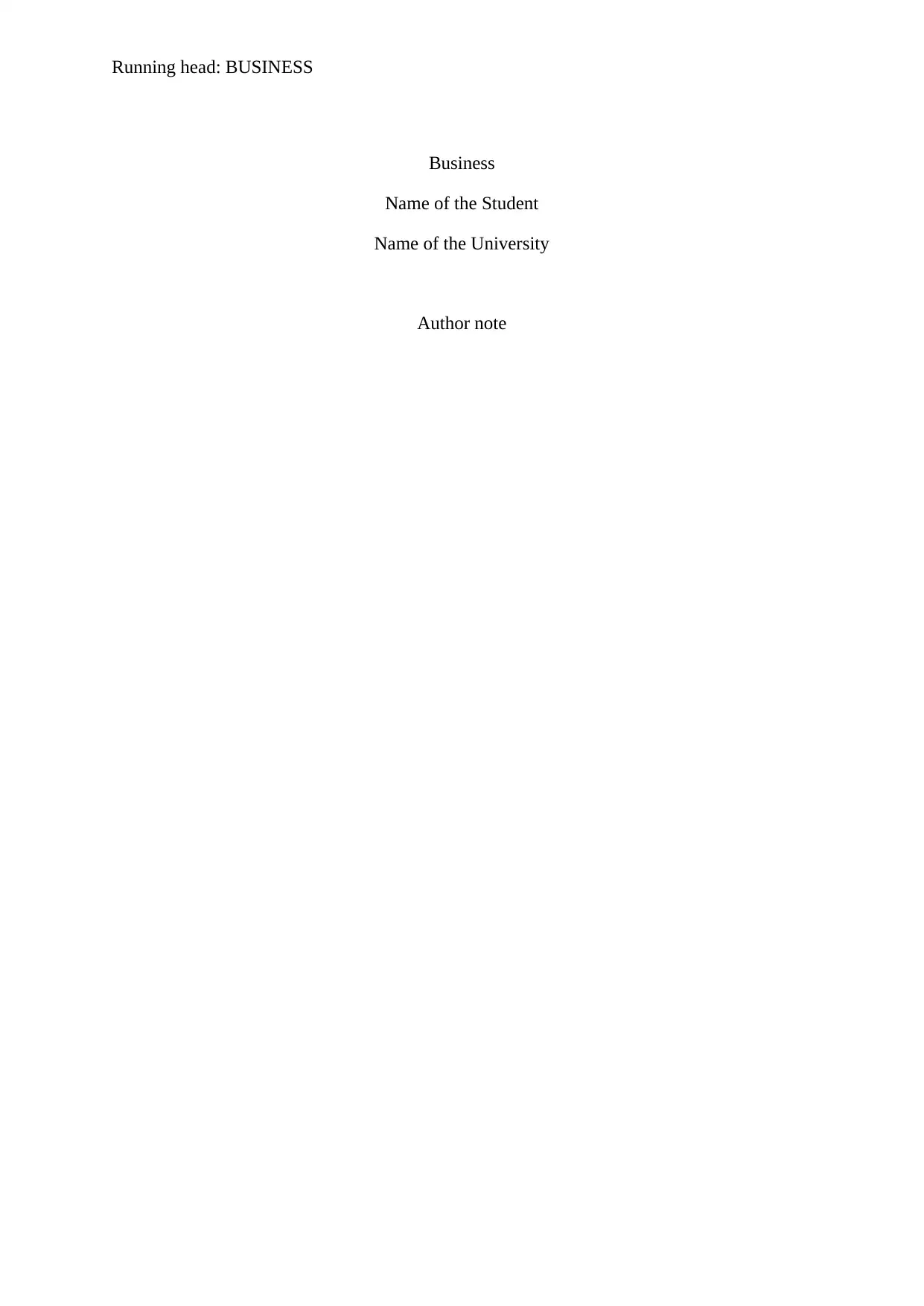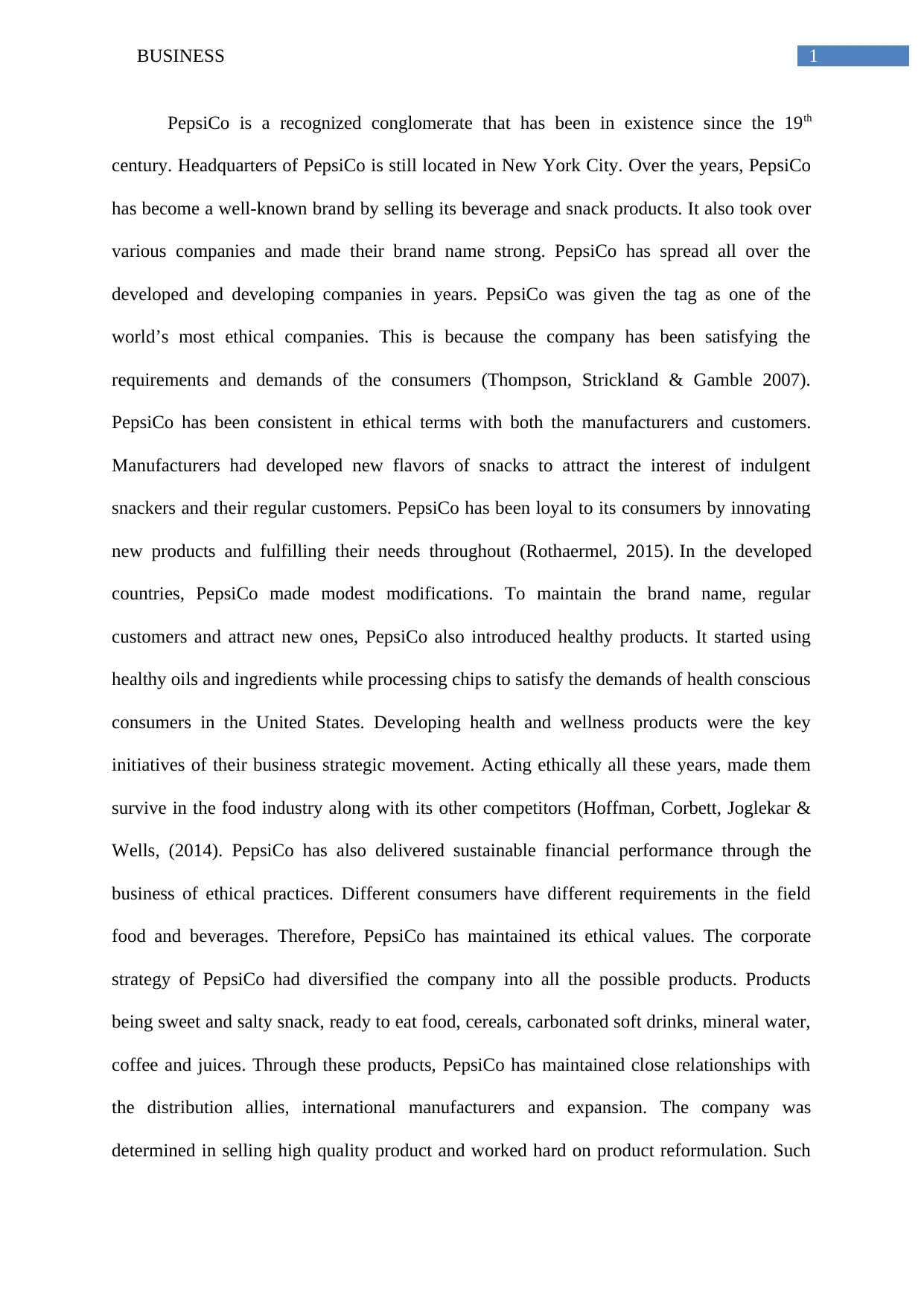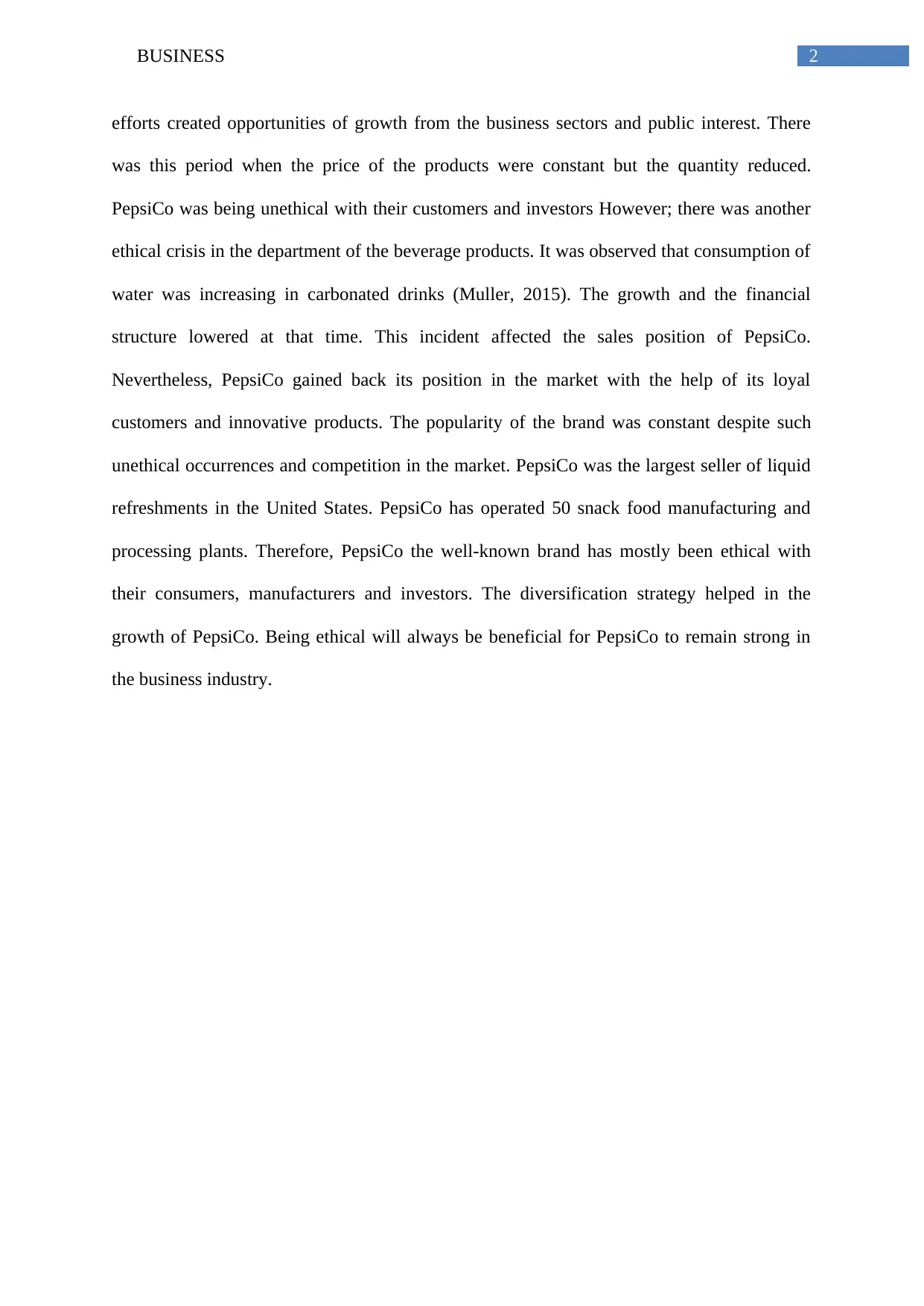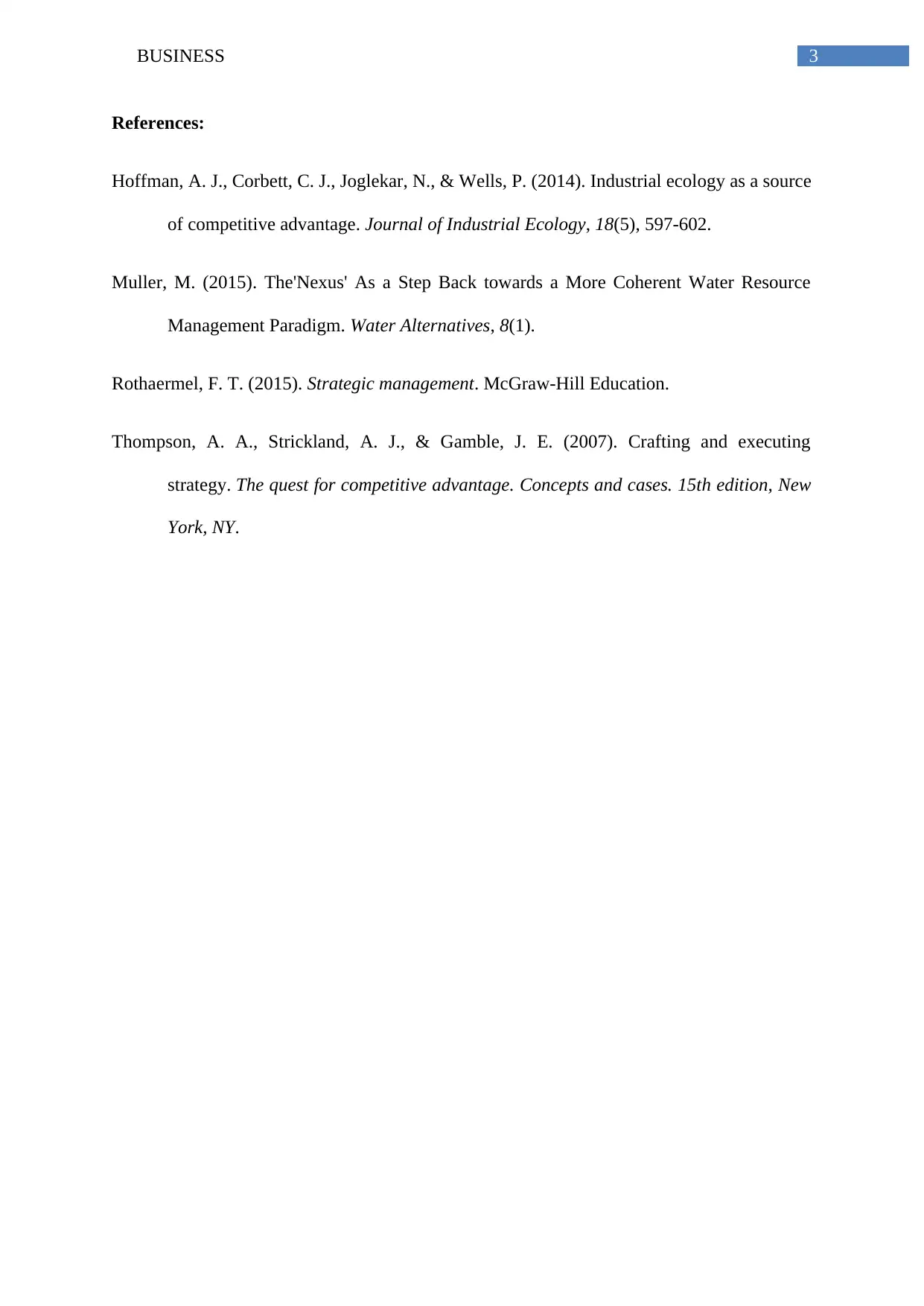BUSINESS 1 - PepsiCo: An Analysis of Ethical Business Operations
VerifiedAdded on 2020/04/15
|4
|721
|295
Report
AI Summary
This report provides an analysis of PepsiCo's ethical business practices, examining its historical context, strategies, and impact on consumers, manufacturers, and investors. It highlights PepsiCo's evolution as a global conglomerate, emphasizing its commitment to ethical standards and its ability to adapt to changing consumer demands through product innovation and diversification. The report discusses instances of ethical challenges, such as pricing issues and shifts in consumer preferences, while also acknowledging PepsiCo's resilience and market dominance. The analysis covers the company's commitment to sustainability and financial performance, demonstrating how ethical behavior has contributed to its long-term success in the food and beverage industry. The report references key academic sources to support its claims, providing a comprehensive overview of PepsiCo's ethical journey and its implications for the business world.
1 out of 4











![[object Object]](/_next/static/media/star-bottom.7253800d.svg)